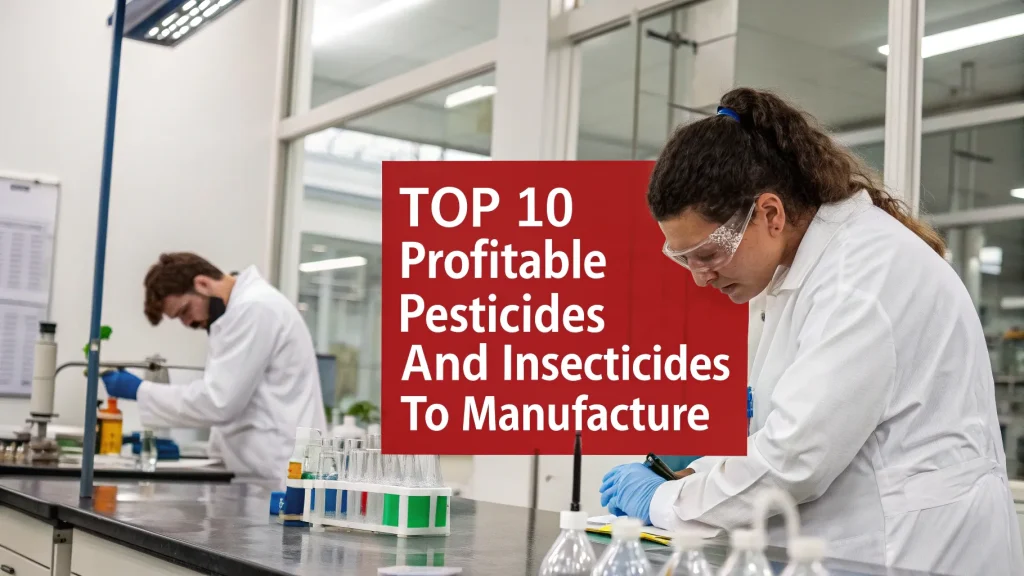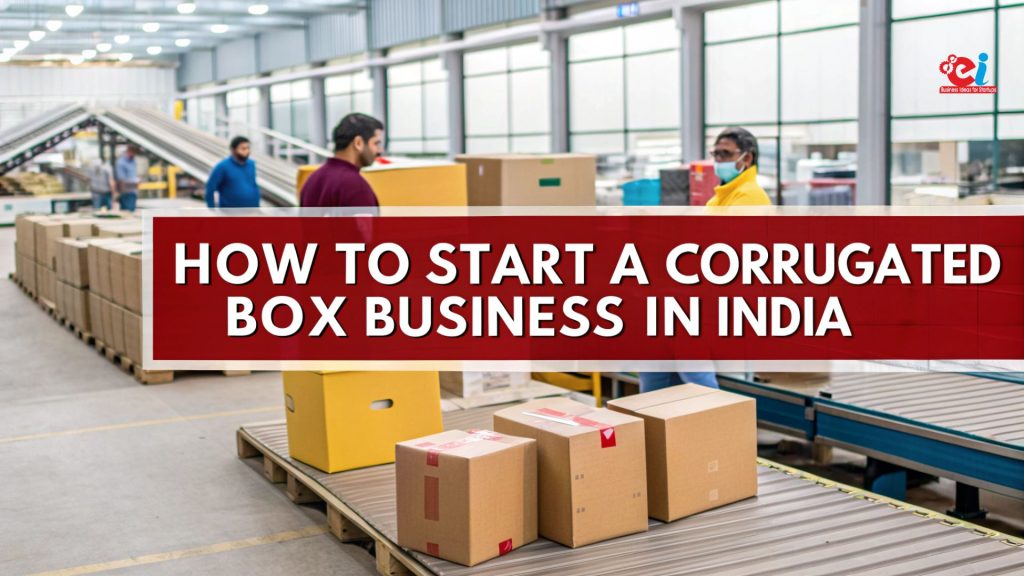Starting a manufacturing business can be one of the most rewarding entrepreneurial ventures in today’s industrial economy. One such opportunity is in RPVC pipe manufacturing, a field with growing demand due to rising infrastructure projects, water supply networks, construction activities, and agricultural irrigation systems. RPVC (Rigid Polyvinyl Chloride) pipes are favored for their durability, corrosion resistance, cost-effectiveness, and versatility in both residential and commercial applications. If you’re looking to step into a profitable and sustainable manufacturing business, setting up an RPVC pipe manufacturing unit can be your gateway to success.
RPVC Pipe Manufacturing: A High-Demand Opportunity
RPVC stands out among various piping materials due to its rigidity and chemical resistance. These pipes are widely used in water transportation, sewage lines, chemical industries, cable ducting, and even HVAC applications. With the increasing focus on urbanization, sanitation projects, and smart city developments, the demand for RPVC pipes is skyrocketing in India and globally.
Starting an RPVC pipe manufacturing unit does not only meet a growing need in the market, but also allows you to tap into multiple customer segments — government tenders, contractors, builders, farmers, and retail hardware shops.
Market Overview and Scope
India’s plastic pipe industry is growing at an impressive rate, with a CAGR of 10-12%. RPVC pipes represent a significant share of this growth. According to recent market reports, the demand for plastic pipes is expected to cross INR 500 billion by 2026. The government’s push toward ‘Har Ghar Jal’ Yojana, rural electrification, and infrastructure development continues to fuel the rise in RPVC pipe consumption.
States like Maharashtra, Gujarat, Uttar Pradesh, and Tamil Nadu are particularly ripe markets due to extensive agricultural activities and infrastructure expansion. Setting up an RPVC pipe manufacturing unit in such regions can ensure you’re close to your customer base while reducing transportation costs.
Key Benefits of RPVC Pipe Manufacturing
- Low Raw Material Cost: RPVC is made from PVC resin, plasticizers, stabilizers, and lubricants, all of which are readily available in the Indian market.
- High Demand: Used across multiple industries and sectors.
- Scalable Business: You can begin with a semi-automatic setup and gradually move to a fully automated plant.
- Export Potential: Indian RPVC pipe manufacturers are exporting to African, Asian, and Middle Eastern countries.
- Government Support: MSME benefits, subsidies, and easy loans are available for new manufacturing setups.
Essential Steps to Start an RPVC Pipe Manufacturing Unit
Starting an RPVC pipe manufacturing unit involves a structured approach. Here’s a step-by-step guide:
1. Market Research and Business Plan
Begin by conducting thorough research. Understand the local demand, competition, potential buyers, and pricing. Prepare a detailed business plan that includes your investment needs, projected profits, marketing strategy, and expansion goals.
2. Company Registration and Licensing
To operate legally, you need:
- Company registration (LLP, Pvt Ltd, or Proprietorship)
- GST registration
- Pollution control clearance
- Factory license
- BIS certification for pipes (IS: 4985 for potable water)
3. Location and Infrastructure
Choose a location with:
- Proximity to raw material suppliers
- Good connectivity to distribution hubs
- Adequate power supply and water access
A standard RPVC pipe manufacturing plant requires 5,000–10,000 sq. ft. of space for machinery, storage, and utilities.
4. Machinery and Equipment
Invest in high-quality machinery to ensure consistent pipe quality. Essential machines include:
- RPVC extrusion line
- High-speed mixer
- Die head and die sets
- Vacuum sizing tank
- Cooling tank
- Haul-off unit
- Cutting unit
- Printing machine
You may also need a grinder for recycling waste and a testing laboratory to ensure product quality.
5. Raw Materials Procurement
Major raw materials for RPVC pipes include:
- PVC resin (K value ~67)
- Stabilizers
- Plasticizers
- Lubricants
- Fillers (like calcium carbonate)
Ensure reliable suppliers and bulk purchasing to optimize costs.
6. Manpower and Workforce
For a medium-scale unit, you’ll need:
- 2-3 skilled machine operators
- 4-5 helpers/laborers
- 1 quality control manager
- 1 plant supervisor
- 1-2 administrative staff
Train your team regularly for operational efficiency and safety compliance.
7. Production Process
The manufacturing process for RPVC pipes includes:
- Mixing raw materials in the high-speed mixer
- Feeding the mixture into the extruder
- Melting and shaping into pipes using die sets
- Cooling in vacuum and water tanks
- Hauling and cutting to desired lengths
- Printing specifications on the pipes
- Quality testing and packaging
8. Quality Control
You must adhere to BIS standards. Key parameters to monitor:
- Pipe wall thickness
- Dimensional accuracy
- Hydrostatic pressure test
- Impact resistance
- Opacity and visual defects
Setting up a basic laboratory will help you meet industry certifications and gain customer trust.
9. Marketing and Distribution
Adopt a multi-channel marketing approach:
- Partner with construction companies and plumbing contractors
- Target agricultural cooperatives
- List your business on B2B platforms like IndiaMART and TradeIndia
- Leverage digital marketing, including SEO and paid ads
Creating a strong dealer-distributor network will significantly boost your RPVC pipe manufacturing business.
10. Financial Planning
Starting an RPVC pipe manufacturing unit involves an estimated investment of ?35–50 lakhs for a small-to-medium setup. This covers:
- Machinery: ?15–20 lakhs
- Infrastructure: ?10–15 lakhs
- Working capital: ?10–15 lakhs
Break-even is typically achieved within 2-3 years depending on capacity utilization and market reach.
Challenges to Be Aware Of
While the opportunity is vast, there are challenges:
- Fluctuating raw material prices
- Intense competition in unorganized sectors
- Strict BIS and pollution control compliance
- Managing inventory and logistics
However, with strategic planning, regular quality checks, and aggressive marketing, these hurdles can be effectively managed.
Sustainability and Future Trends
Eco-conscious manufacturing is gaining traction. RPVC pipes, being recyclable and durable, have an edge. By investing in recycling units and reducing waste, you can brand your business as an eco-friendly manufacturer.
Automation and AI integration for precision quality control and energy-efficient systems are the future of the industry. Early adopters of such technologies will lead the market in the coming years.
Conclusion
RPVC pipe manufacturing is an evergreen business opportunity with strong domestic and international demand. With a moderate investment, the right location, and a focus on quality and customer service, entrepreneurs can establish a profitable venture with long-term growth potential.
Whether you’re an existing industrialist looking to diversify or a first-time entrepreneur, now is the ideal time to launch your own RPVC pipe manufacturing unit. With the right strategy and execution, success in this booming sector is well within your reach.
Visit the page Select and Choose the Right Business Startup for You for sorting out the questions arising in your mind before starting any business and know which start-up you can plan. We, at NPCS, endeavor to make business selection a simple and convenient step for any entrepreneur/startup. Our expert team, by capitalizing on its dexterity and decade’s long experience in the field, has created a list of profitable ventures for entrepreneurs who wish to diversify or venture. The list so mentioned is updated regularly to give you a regular dose of new emerging opportunities.




